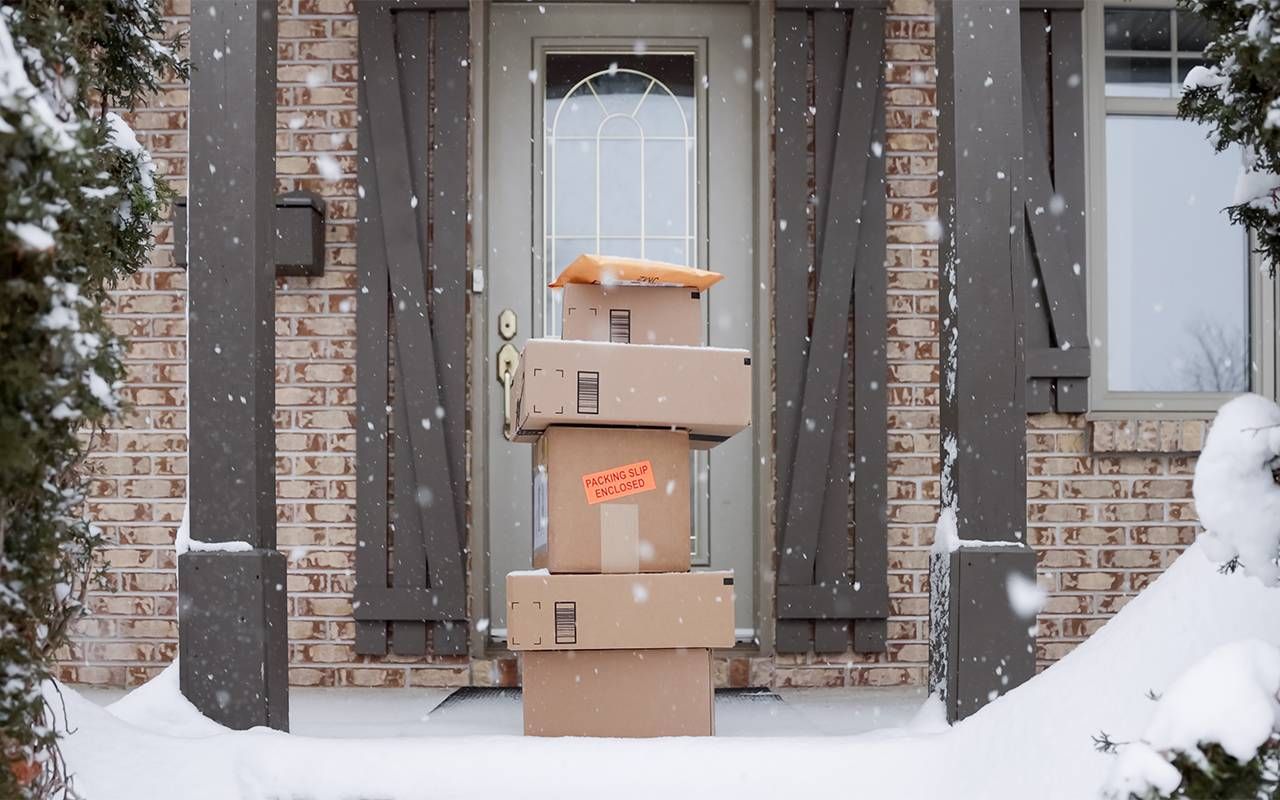The Impact of the Holidays on People with Hoarding Disorder
Whether it's overspending, or being ashamed of inviting family into their homes, it's a challenging time of year — but help is available
There are many things we associate with the holiday season — snow, carols, time spent with family, beautiful light displays, and so on. But more and more, the holidays are synonymous with shopping. Immediately after Thanksgiving, Black Friday hits, and televisions, newspapers and phone screens fill with reminders to snag the best deals, buy the perfect gift and maybe even sneak in a few treats for yourself while the sales are still good.

People with hoarding disorder are also seeing these messages, which makes the holiday season a particularly hard time for them to manage the urges to spend and acquire that they struggle with year-round.
"When someone with hoarding issues sees holiday shopping advertisements, they often think 'Wow, I can get a bargain,'" says Doug Braun, a clinical social worker with Benjamin Rose Institute on Aging's Behavioral Health Services. "They think, 'I can get a gift for somebody and not really have anybody in mind. This is a deal; I need to purchase it now.' It can really trigger their urge to buy."
"Online shopping can be more difficult to rein in, so if people with hoarding issues can avoid it, they should."
'Tis the Season to Spend Money?
These days, it's nearly impossible to avoid seeing holiday advertisements. So how can people with hoarding disorder overcome the urge to give into the pressure of holiday consumerism? Your strategy might need to vary depending on how you like to shop, says Braun.
"Online shopping can be more difficult to rein in, so if people with hoarding issues can avoid it, they should," Braun suggests. "If you do buy things online, don't hit the purchase button right away; wait until the next day. Filling your cart and making the purchase provides a sense of instant gratification. It makes you happy for a short moment in time."
He adds, "But if you're able to delay that until the next day, often you'll look at your shopping cart and realize that you don't even need or want what you put there. The good feelings you were experiencing came from shopping and the thought of making a purchase, not the items themselves."
For in-store shoppers, the environment of holiday sales and limited stock can lend itself to feelings of competition between the buyers in the store — which is why we often see footage of Black Friday descending into chaos. "A lot of people look at it as 'I got the bargain, and someone else didn't,'" says Braun. "If you feel like you need to 'win' against others, it's going to drive up the urge to spend."
To curb these urges, Braun recommends putting preventive measures in place before you even leave to go shopping. "Only have a certain amount of cash on you, and if you can, don't bring your credit card," he recommends. "It's really easy to pull out a credit card and think, 'with this, any item I want can be mine.' Not having a credit card with you will make it easier to set limits on your spending."
Challenges of Holiday Entertaining
Another message people with hoarding disorder may struggle with hearing during the holiday season is that the home is integral to holiday gatherings. This can be especially challenging for older adults, often central figures in their family who their children and grandchildren want to gather around.
"A lot of people with hoarding disorder will avoid having family over, and as a result will end up feeling down and frustrated about it and be angry with themselves for what they perceive as a failure to provide the kind of holiday they want for their family," says Braun. "For many, it's just another painful reminder that they don't have full control over their environment."
However, family connection is just as important for people with hoarding disorder, especially during the holiday season. "Many of the people I work with set aside their feelings of embarrassment and clear out an area for their family, because that connection is so important to them," says Braun. Others may find it easier to arrange for the holidays to be spent at another family member's home.
What's important is resisting the urge to withdraw from family and loved ones entirely because of hoarding issues, says Braun. With the right support, feelings of shame and embarrassment can be managed; estrangement from family can be much more difficult to repair.
Start the New Year Right
Though the holiday season may be a difficult time for people with hoarding disorder, the coming new year may provide fresh opportunities to work on getting the situation under control.
"Hoarding disorder is a mental condition, and it can be hard on a mental level to have to confront the issue at someone else's pace rather than your own."
"If you want to begin the journey of managing your hoarding, a good place to start is to look into support groups for hoarders," says Braun. "It really helps to see and interact with others who are going through something similar and starting off in an environment where you don't have to hide or feel ashamed can make it easier to face the situation honestly."
Getting the right professional help is also key. "Before your situation reaches a crisis point, call an organization specializing in hoarding and mental health support," Braun says of Benjamin Rose Institute on Aging's Behavioral Health Service. "It's in your best interest to get help before the city's health and/or housing departments get involved, because when that happens, you lose control over the timeline of your progress, and recovery becomes more about the immediate cleanout than treating the core issue. Hoarding disorder is a mental condition, and it can be hard on a mental level to have to confront the issue at someone else's pace rather than your own."
As for the timeline of making progress, it's important to recognize that working through a mental condition doesn't happen overnight. It may be tempting to give up if the change isn't immediate, but Braun emphasizes that most successful attempts to manage hoarding are made through small efforts that continually add up.
"Your situation is not hopeless," says Braun. "It can be confronted, and you can make progress — even if it's not progress that is easily recognizable to other people, or even yourself. Even just clearing out a small area of clutter is change and should be celebrated. If it's something you can do now that you weren't able to do before, isn't that exactly what progress is all about?"


